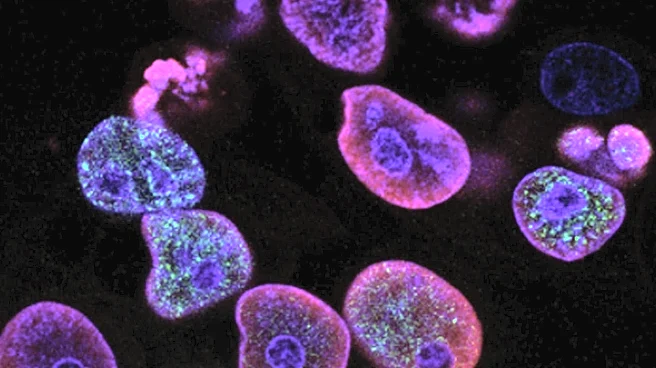What is the story about?
What's Happening?
Research has identified PD-1+ T cells as cellular targets for immune checkpoint inhibition in atherosclerosis. These cells, particularly progenitor exhausted T cells, are associated with increased IFNγ production and inflammation in atherosclerotic plaques. The study suggests that targeting PD-1+ T cells could modulate immune responses in cardiovascular disease, potentially reducing plaque inflammation and improving outcomes.
Why It's Important?
Understanding the role of PD-1+ T cells in atherosclerosis could lead to novel therapeutic strategies for cardiovascular disease, focusing on immune modulation. This approach may offer a new avenue for reducing the risk of heart attacks and strokes by addressing the inflammatory component of atherosclerosis.
Beyond the Headlines
The findings highlight the intersection of immunology and cardiovascular research, suggesting that immune checkpoint inhibitors, typically used in cancer treatment, could have applications in managing heart disease. This cross-disciplinary approach may lead to innovative treatments that address multiple health conditions.















